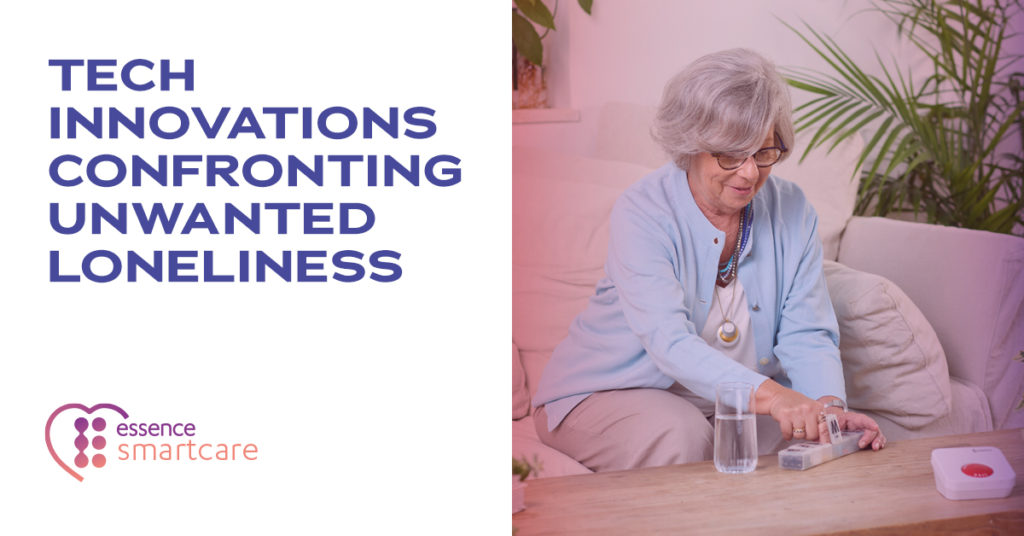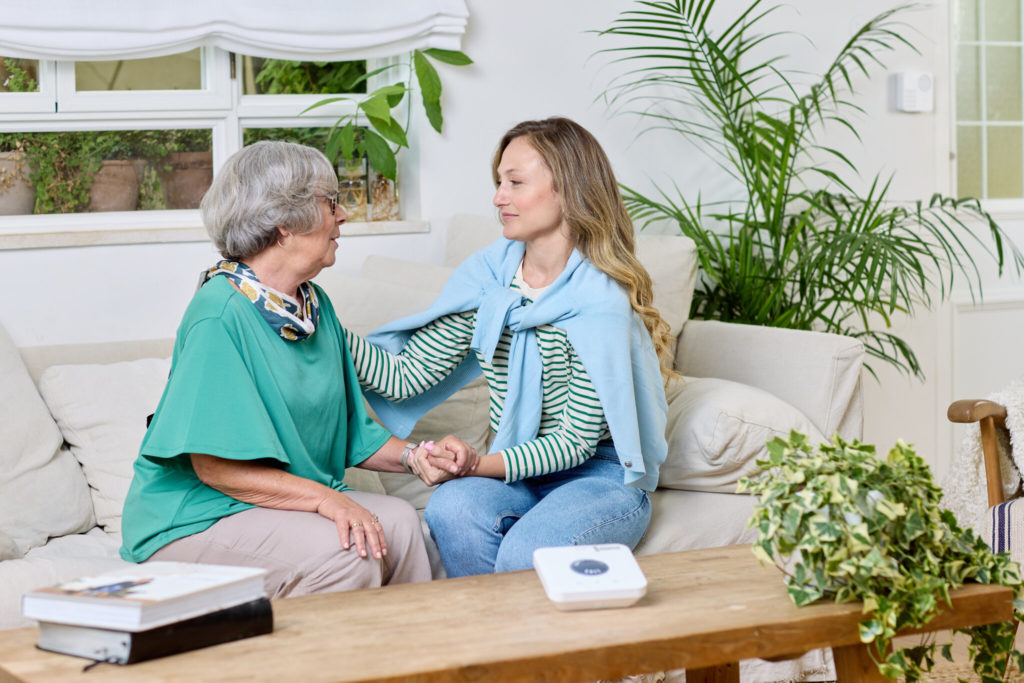
Unwanted loneliness is a global issue deeply rooted in our society. Although it affects all social groups, numerous studies indicate that age is a highly relevant factor, with a greater impact on older individuals. Combating social isolation and loneliness which is a severe public health risk – has become a challenge for governments worldwide seeking to raise awareness of a widespread problem that does not receive the attention it deserves and affects a large percentage of the population.
Recognizing this, some countries have elevated unwanted loneliness to a matter of state, creating dedicated departments in their governments. For instance, the United Kingdom, alerted by the WHO that it was the European country in which most older people felt lonely, established the Ministry of Loneliness in 2018. A few years later, amid the pandemic, Japan announced the creation of a Ministry of Loneliness in February 2021 in response to a significant increase in cases of social isolation. Sweden also has a Ministry of Loneliness to manage the lives of those who feel forgotten.
Furthermore, approximately one-quarter of community-dwelling Americans aged 65 and older are considered socially isolated, and a significant proportion of adults in the United States report feeling lonely. Unwanted loneliness is, therefore, a social and health problem that affects more and more older people worldwide. It is a source of suffering, limits the ability to participate in society, and has negative consequences on multiple aspects of life, generating social costs. For example, in Spain, the annual associated cost of unwilling loneliness is €14.141 billion, 1.17% of the annual GDP.

Staying connected with others is essential for improving physical and mental well-being and can alleviate the effects of unwanted loneliness.
There is no simple, one-stop solution to this complex problem. However, one thing is clear: connection is key. Whether through in-person interactions, phone calls, or video calls, staying connected with others is essential for improving the physical and mental well-being of seniors, mitigating negative effects. An analysis of recent studies and statistics contributing to this issue makes us understand that we should move towards a more supportive society where connection is prioritized to find ways to combat unwanted loneliness.
In this context, aging-in-place technology, through the development of new intuitive solutions, is facilitating a connected care of older people at risk of loneliness. They help them to regain their previous social relationships and maintain constant contact with their families. One of these technologies is remote monitoring solutions available today. The features and benefits of current advanced activity monitoring systems, containing various motion and security sensors to monitor the daily routines of older people, are very effective instruments in detecting and predicting cases of loneliness causing stress or mental health issues.
One of the most alarming consequences of loneliness, for which special care must be taken, is the development of dementia or memory loss. By keeping abreast of everyday activity, and notifying family members when something is wrong, we know when intervention is required, and a simple phone call can alleviate a potentially stressful situation. In some of these cases, family members can improve the quantity and quality of social interaction with their elders in a more pleasant and closer way by showing interest, through this activity monitoring, in how they spent their day. Conversely, if a son or daughter is already up-to-date with their parent’s daily activities, their regular conversations will not descend into an investigation on how they have been taking care of themselves. Anecdotal evidence suggests that, by reducing the stressful elements of these regular interactions, the relationship between elderly parent and adult child can be vastly improved, consequently going a long way to alleviating their sense of loneliness.
Essence SmartCare goes beyond remote monitoring with its innovative alarming system, which notifies family members and healthcare professionals about elderly daily routines and any anomalies to prevent critical situations. To address the increasing need to support seniors living alone and avoid social isolation, Essence now offers a new service called “Smart Call.” This highly customized AI-based platform generates automatic bot calls that are personalized to each individual or group of individuals. With limitless proactive capacity, it allows for multiple simultaneous calls with customized scripts, ranging from standard medication reminders and wellbeing check-ins to personalized friendly notifications such as birthday greetings or reminders about important family dates. This service ensures uninterrupted support and continuous human interaction, while enhancing senior independence.
Technology continues to take steps to reduce the problems triggered by unwanted loneliness in older people, and advances such as Intelligent Voice Activation, patented by Essence SmartCare, providing active listening 24 hours a day, allow users in their homes to send alerts and speak or listen to their caregivers from any room. These are the instruments that governments are installing in homes to fight loneliness and social isolation. Undoubtedly, it is one of the paths to follow.
An article by Fernando Sánchez Luque, Communication Director at Essence Group Spain
Originally published in Spanish at: https://www.geriatricarea.com/2023/12/14/avances-tecnologicos-para-combatir-la-soledad-no-deseada/
